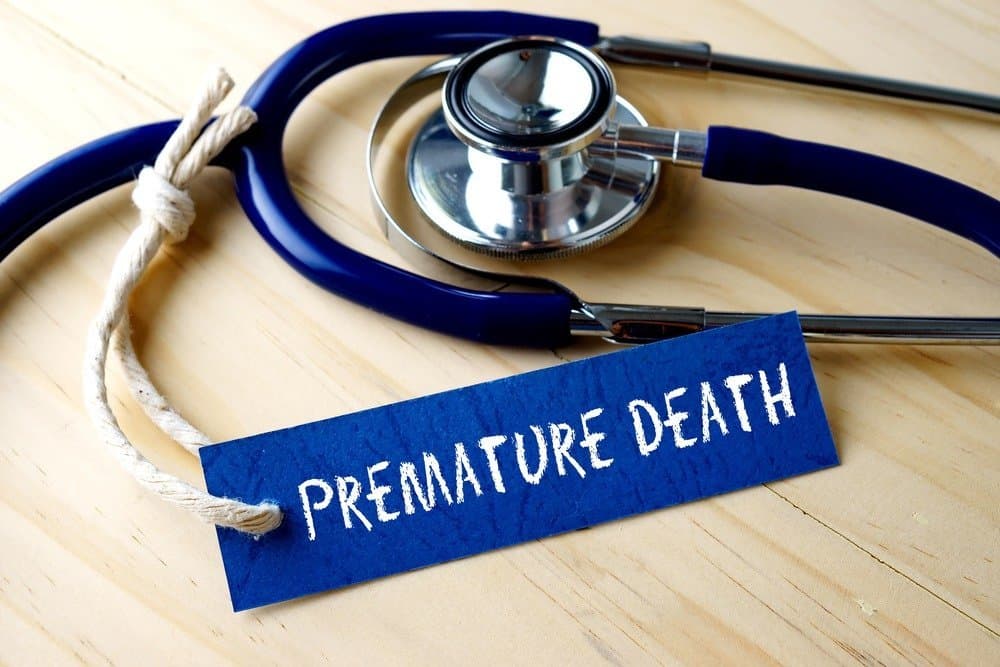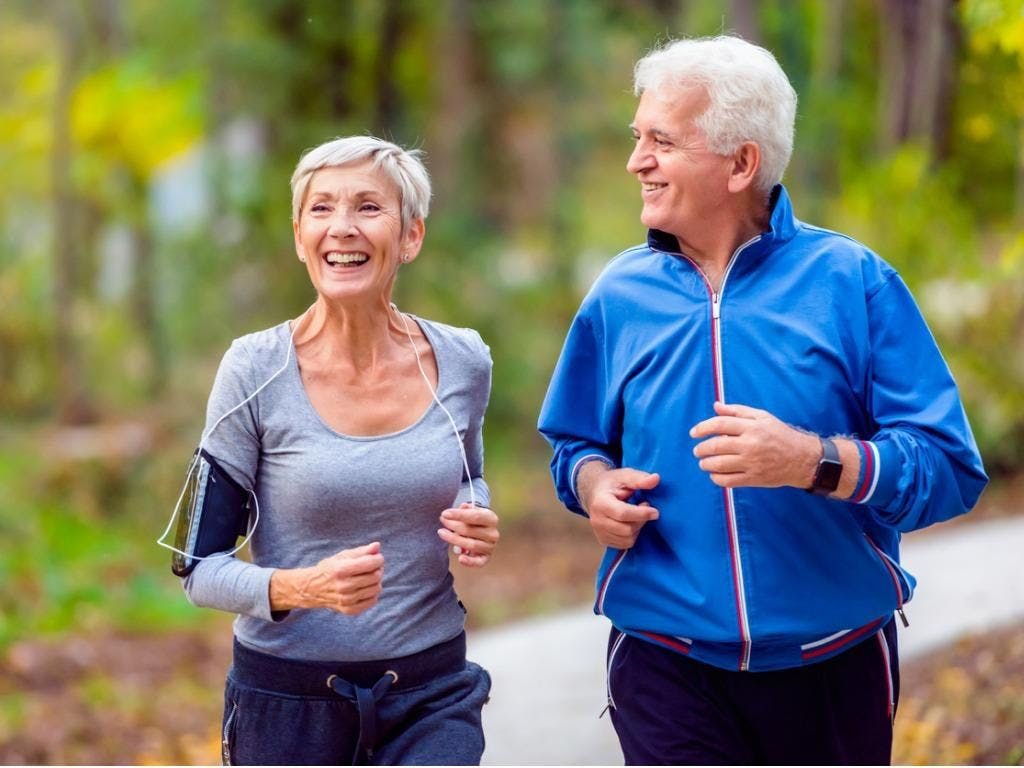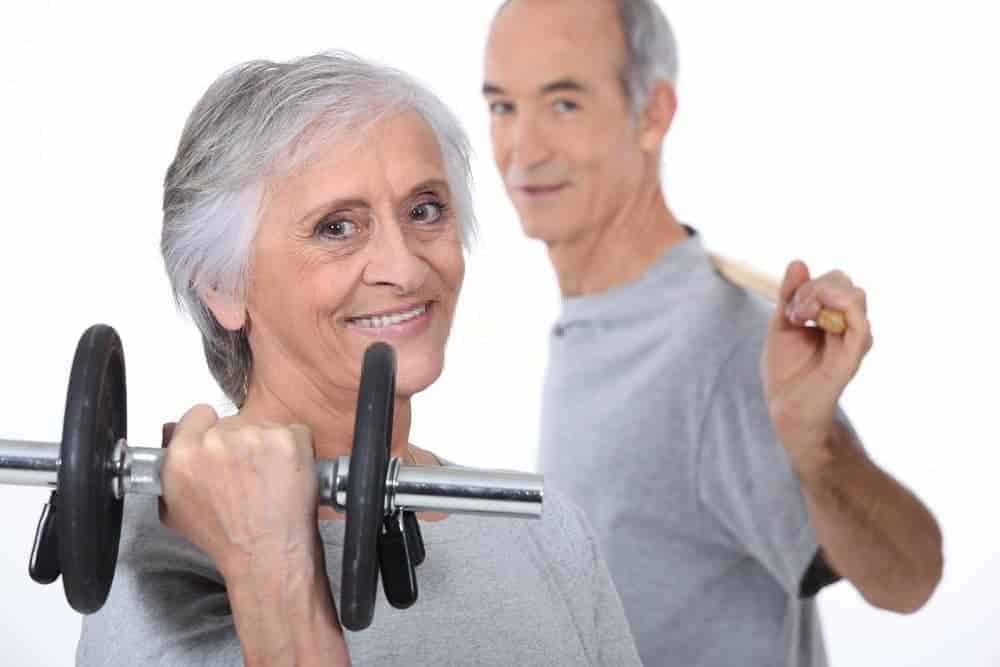This article breaks down the exact science. You will learn how exercise adds years to your life. We cover the optimal types and amounts of activity. You’ll see the compelling data on heart health, cancer risk, and mental sharpness. We provide a clear action plan to build your longevity routine today. Start now. Your future self will thank you.
But you probably wonder: is it too late to start? The data says no. The longevity benefits of exercise are powerful at any age. Being active cuts your risk of disability and cognitive decline, regardless of when you begin.
Yes, exercise makes you live longer. Regular physical activity is scientifically proven to extend your lifespan by reducing your risk of chronic disease and mortality. According to 2026 research, meeting the 150-minute weekly exercise guideline can slash your risk of all-cause mortality by up to 31%.
Key Takeaways
- Regular exercise has been linked to increased lifespan and improved overall health.
- Engaging in physical activity can reduce the risk of chronic diseases such as heart disease, diabetes, and certain types of cancer.
- Exercise helps maintain a healthy body weight, which is crucial for longevity.
- Physical activity promotes better mental health by reducing stress and improving mood, and studies have shown that regular physical activity offers these benefits.
- Incorporating both cardiovascular exercises and strength training into your routine can maximize the benefits.
- Choosing activities you enjoy and can sustain in the long term is important.
- Consistency is key when it comes to reaping the long-term benefits of exercise.
There’s no question that exercise is good for your health. But can it add years to your life?
Yes, exercise can add years to your life, especially if it includes vigorous exercise. Studies show it lowers the risk of death from heart disease, cancer, and other conditions. A landmark 2026 study confirmed that exercising 150 minutes a week can cut your death risk by 31 percent, highlighting the profound impact of consistent physical activity on longevity.
But, how many years exercise adds to your life span is unclear. People who exercise tend to live a bit longer, but the difference is small.
According to 2026 research, men who exercised moderately or vigorously lived 1.3 years longer than non-exercisers. This might seem significant, but it’s a small fraction of the difference between smokers and non-smokers.
Another study found active men lived 2.2 years longer, on average, than inactive men. Active women gained 1.1 years.
So, consistent exercise can help you live longer, but the most substantial longevity gains come from a holistic approach. For a longer, healthier life, prioritize quitting smoking, eating a nutrient-rich diet, and maintaining excellent sleep hygiene.
Consider this:
While guidelines suggest at least 2 1/2 hours of moderate strength workout a week, Harvard College scientists say just 15 minutes a day could add three years to your life.
A 2018 JAMA Network Open study found not exercising is riskier than smoking, diabetes, and heart disease.
This study also shows why exercise is so important – it makes your cells act younger.
Brigham Young University researchers analyzed DNA from almost 6,000 adults. They discovered that highly active people had longer telomeres, the protective caps at the end of chromosomes. This cellular advantage made them biologically up to nine years younger.
Another Study

A landmark 2026 study revealed that people in their 70s who exercise regularly possess the cardiovascular health, lung capacity, and muscle mass fitness of healthy individuals thirty years younger. “We were stunned,” says Scott Trappe, director of the Human Performance Laboratory at Ball State University and lead author of the study. “We assumed aging inevitably leads to frailty. But examining the muscle tissue of older exercisers, we couldn’t distinguish between young and old.”
Trappe’s study focused on males and females who have been exercising for years. But it’s never too late to start. Even people who start exercising in their 80s and 90s see significant health and longevity benefits. A study in the International Journal of Stroke found that becoming fit later in life (ages 40 to 59) cut the risk of a stroke by 50%. Those who were fit when younger and then became unfit saw their risk increase.
Any exercise can help you live longer. Here’s what the research says about getting the most benefits from your workout:
Discover a partner (or a team)
A study in Mayo Clinic Proceedings found that team sports may be better for increasing your life expectancy than solo exercise. Playing tennis added an average of 9.7 years to life span, followed by badminton (6.2 years) and soccer (4.7 years). “They are all tasks that require social interaction in a fun way,” says study coauthor James O’Keefe, a cardiologist at Saint Luke’s Mid America Heart Institute. “And play is nature’s treatment for stress.”
The results also match 2026 research confirming that strong social connections are key to longevity. And if something seems fun, you’re more likely to do it. If tennis isn’t your thing, O’Keefe suggests trying pickleball, a fast-growing racquet sport that combines badminton, tennis, and table tennis.
Begin small
Don’t have thirty minutes to exercise? Studies show that any amount of physical activity can have big benefits. Just a two-minute walk can improve your health. King advises looking for small ways to boost your heart rate: Take the stairs, park further from the store, or take a quick walk after dinner.
Exercise for an hour a day
Exercise is good for your life span, and more is better. Up to about 450 minutes a week, says Alpa Patel, an epidemiologist at the American Cancer Society and co-author of a study on exercise and mortality. People who exercise that much have a 37 % lower risk of premature death than those who don’t exercise.
Consider High-Intensity Interval Training
Experts say adding some tough tasks to your workout is best. The best method for longevity is High-Intensity Interval Training (HITT). HITT involves switching between intense efforts and easier exercises during a workout, which can be considered a form of vigorous exercise. Research shows HITT can reverse the signs of aging at a cellular level.
Stand up and walk around
Research shows that the more you sit, the higher your risk of death. A 2017 study found that sitting for long periods increases your risk. But, taking breaks every 30 minutes can lower your risk. Try setting an alarm to remind you to stand up and walk every half hour.
Or, stand up and do something during TV commercial breaks.
Work on your balance
Can you stand on one leg with your eyes closed for over 10 seconds? A study found that seniors who could do this had a lower risk of early death, especially those who engaged in moderate physical activity. Improving balance can help prevent falls.
Yoga and tai chi are great for balance. Try standing on one leg while you cook. Or, follow Abby King’s tip: stand on one leg while brushing your teeth.
Exercise is key to a long and healthy life, says Abby King. It keeps you healthy, strong, and helps you sleep better. It also makes daily tasks easier and prevents cognitive decline.
So, choose an exercise you enjoy and stick with it.
Healthy Lifestyle
Less than 5% of seniors meet the recommended exercise standards. “Levels of physical activity in people 65 and older have not changed in years,” says Miriam Nelson.
Starting to exercise, even if you’re older, can still benefit you. Experts say less active people will see more improvements than busy ones. “It doesn’t matter how old you are,” says Colin Milner. “It’s never too late to start exercising.”
Exercise can even change how our DNA works. A 20-minute workout can tune up DNA, making muscles work better. Research shows that exercising for about 30 minutes 5 days a week can help overcome genetic risks.
So, Does Exercise Make You Live Longer?

It’s hard to say for sure. But, regular exercise can lower your risk for many age-related conditions.
Joint inflammation
Exercise might seem hard if you have osteoarthritis. But, it’s one of the best ways to feel better, especially for sore knees.
“Almost all studies show that exercise reduces pain and disability,” says N. John Bosomworth. His 2009 study found that exercise is as effective as ibuprofen for pain relief.
Dementia

“Exercise can maintain your mind sharp,” says Milner. Its effect on brain health is getting a lot of attention from researchers. A 2006 study by the Group Health Research Institute in Seattle found that more physical activity can cut the risk of mental decline and Alzheimer’s by 30 to 40 % for people over 65. “Just 15 minutes a day, three times a week, helped keep the mind sharp,” says Eric Larson, the lead researcher.
The weakening of bones
Broken bones and loss of strength can make it hard to live on your own. Exercise can help by making bones stronger and reducing the risk of fractures. A 2010 study compared women 65 and older who did a workout routine with those who didn’t.
Among the 227 women in the study, those who exercised saw big gains in bone mineral density in the spine and hips. They also had a 66 % lower rate of falls and half as many fractures from falls. Activities like walking, running, and stair climbing are great for keeping bones strong.
Type 2 diabetes

Exercise helps keep blood sugar levels in check and improves heart and blood circulation. This reduces the risk of heart disease and nerve damage, common in diabetes. In a 2001 study, the National Institutes of Health looked at about 3,200 people at risk for diabetes.
One group made lifestyle changes, losing 7 % of their body weight through diet and exercise for at least 150 minutes a week. A second group took the diabetes drug metformin, and the third got a placebo. After three years, the lifestyle group had a 58 % lower risk of diabetes, and the metformin group had a 31 % lower risk.
A 10-year follow-up study confirmed these results. The lifestyle group had a 34 % lower risk of diabetes compared to the metformin group, which had an 18 % lower risk.
Cardiovascular disease
Exercise is good for the heart and blood vessels. A 2007 study from Brigham and Women’s Hospital in Boston found that more exercise means more benefits. Researchers looked at over 27,000 women for about a decade.
Heart Disease

Studies show that exercising at least five hours a week can cut heart risks by 41%. Working out 2 to five hours a week lowers the risk by 32%. And exercising 1 to two hours a week can reduce the risk by 27%.
Regular exercise also helps lower blood pressure and bad fats, while raising good HDL cholesterol. This protects against heart attacks and atherosclerosis.
Stroke
A stroke happens when a blockage stops blood from reaching the brain, and studies have shown that regular physical activity can help reduce the risk. Older adults who exercise have a lower stroke risk. In fact, they can cut their stroke risk by about 60%.
Researchers found that exercise reduces stroke severity in older adults. Exercise improves heart function, raises HDL cholesterol, and makes blood platelets less sticky. This reduces the risk of clots and improves blood flow.
Depression
Exercise is a great way to fight mood disorders, especially for older adults. A 1999 study showed that exercise was as good as antidepressants in fighting anxiety in people over 50.
Premature death
The Aerobic exercise Facility, funded by NIH, studied 2,600 people over 60. They found that the least-fit group had a death rate four times higher than the fittest. This study, published in 2007, confirms the importance of exercise for a long life.
Have a healthier heart

Exercise boosts HDL cholesterol and lowers bad LDL cholesterol and triglycerides. It also helps control blood pressure, burn fat, and lower blood sugar. This improves heart health.
After a heart attack, exercise can cut the risk of dying from heart disease by one-third, particularly when engaging in moderate physical activity.
Overcoming Common Exercise Barriers
Even though we know exercise can help us live longer, many people find it hard to keep a regular fitness routine. Common obstacles can make it difficult. Let’s talk about these obstacles and how to deal with them.
Tracking Your Progress: Metrics for Longevity
While we can’t directly measure how much longer we’ll live, we can look at certain health metrics. These metrics can show if your exercise routine is helping you live longer.
| Metric | Target Range | Frequency of Measurement |
|---|---|---|
| Resting Heart Rate | 60-100 bpm (lower is generally better) | Daily |
| Blood Pressure | Below 120/80 mmHg | Monthly |
| Body Mass Index (BMI) | 18.5-24.9 | Monthly |
| Waist Circumference | Men: < 40 inches, Women: < 35 inches | Monthly |
| VO2 Max | Varies by age and gender (higher is better) | Every 3-6 months |
| Grip Strength | Varies by age and gender (higher is better) | Every 3-6 months |
Tracking your VO2 max and resting heart rate proves your exercise works. A 2023 study in the *Journal of the American College of Cardiology* found improving your VO2 max by 3.5 ml/kg/min reduces all-cause mortality risk by 12%. Seeing this data keeps 73% of exercisers more consistent, directly supporting longevity.

The Role of Technology in Exercise and Longevity
Today, technology can help you live a longer and healthier life through exercise. Here are some ways to use tech for better health:
- Fitness trackers: Devices like Fitbit or Apple Watch can track your activity levels, heart rate, and sleep quality.
- Smartphone apps: Apps like MyFitnessPal or Strava can monitor your workouts, nutrition, and progress over time, helping you maintain regular physical activity.
- Virtual fitness classes: Platforms like Peloton or Nike Training Club offer guided workouts you can do at home.
- AI-powered personal training: Apps like Freeletics or Future use algorithms to adjust your workout intensity weekly. Users who follow AI-customized plans for 12 weeks see a 19% greater improvement in cardiorespiratory fitness than those using static plans, according to data from Stanford University.
- Genetic testing: Companies like 23andMe can give you insights into your genetics. This can help you create a personalized exercise and nutrition plan for better health, as studies have shown the benefits of a healthy diet and regular physical activity.
Frequently Asked Questions
How many years can exercise add to your life?
Research indicates the gain is modest but significant. Studies show active men may live 1.3 to 2.2 years longer, while active women may gain about 1.1 years. However, the quality of those extra years, with reduced disability and disease, is a major benefit.
Is it too late to start exercising for longevity if I’m older?
No, it’s never too late. Studies show people who start exercising even in their 80s and 90s see health benefits. Research on 70-year-olds found regular exercisers had the fitness of people 30 years younger, proving significant improvements are possible at any age.
What type of exercise is best for living longer?
A combination is ideal. Incorporate both cardiovascular exercise and strength training. Interestingly, team sports like tennis or soccer may offer superior longevity benefits due to social interaction. The key is choosing enjoyable, sustainable activities for long-term consistency.
How much exercise do I need to reduce my risk of death?
Guidelines suggest 150 minutes of moderate exercise per week, which can reduce death risk by about 31%. However, even 15 minutes of daily activity can add years. A major study found physical inactivity is a greater health risk than smoking, diabetes, or heart disease.
How does exercise make your cells act younger?
Exercise positively affects cellular aging. Studies show active people have longer telomeres—the protective caps on chromosomes. This biological marker can make an active person’s cells appear up to nine years younger than those of a sedentary person of the same chronological age.
Does exercise for longevity work as well as quitting smoking or eating healthy?
While exercise is crucial, its direct impact on lifespan extension is generally smaller than that of quitting smoking. For maximum longevity, a holistic approach is best: combine regular physical activity with not smoking, a healthy diet, and good sleep habits.
Conclusion: Embracing Exercise for a Longer, Healthier Life
The evidence is clear. Regular exercise helps us live longer and better. When we do cardio exercise, we work our hearts and lungs. Strength training builds our muscles. Flexibility exercises stretch our bodies. These activities lower the risk of diseases and add years to our lives.
Resources
Centers for Disease Control and Prevention – Physical Activity Basics
American Heart Association – Physical Activity Guidelines
National Institute on Aging – Exercise and Physical Activity
